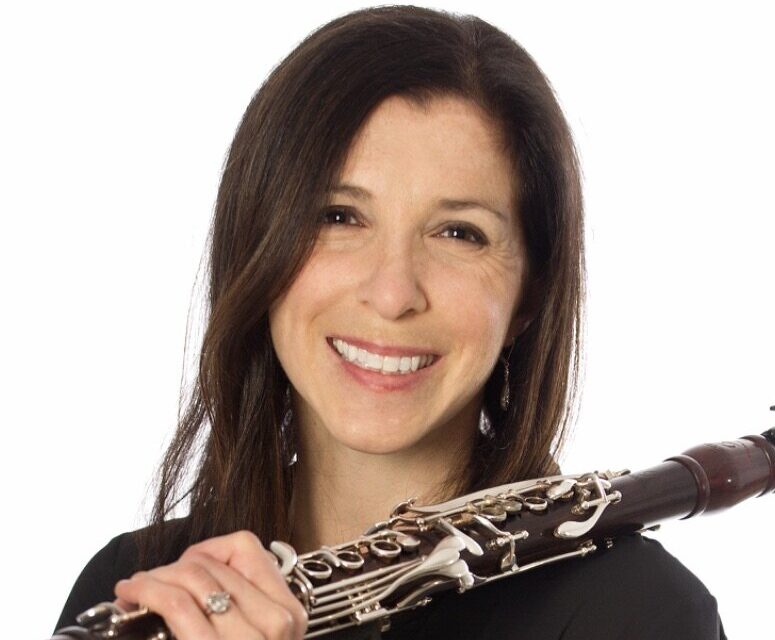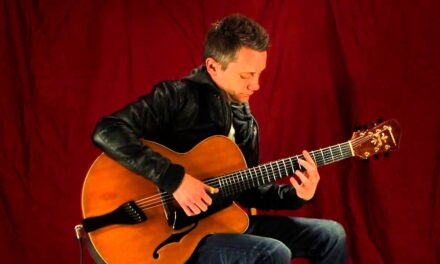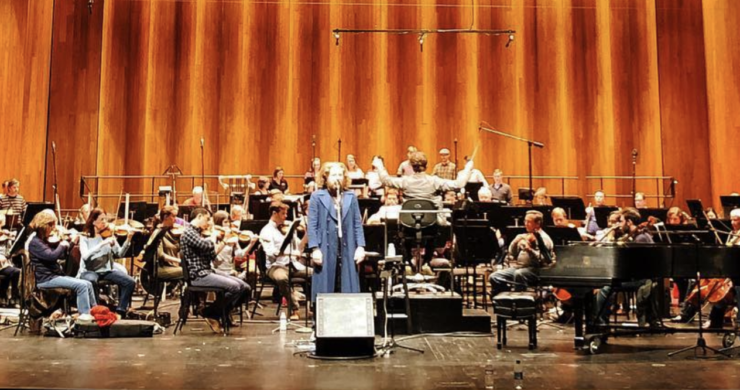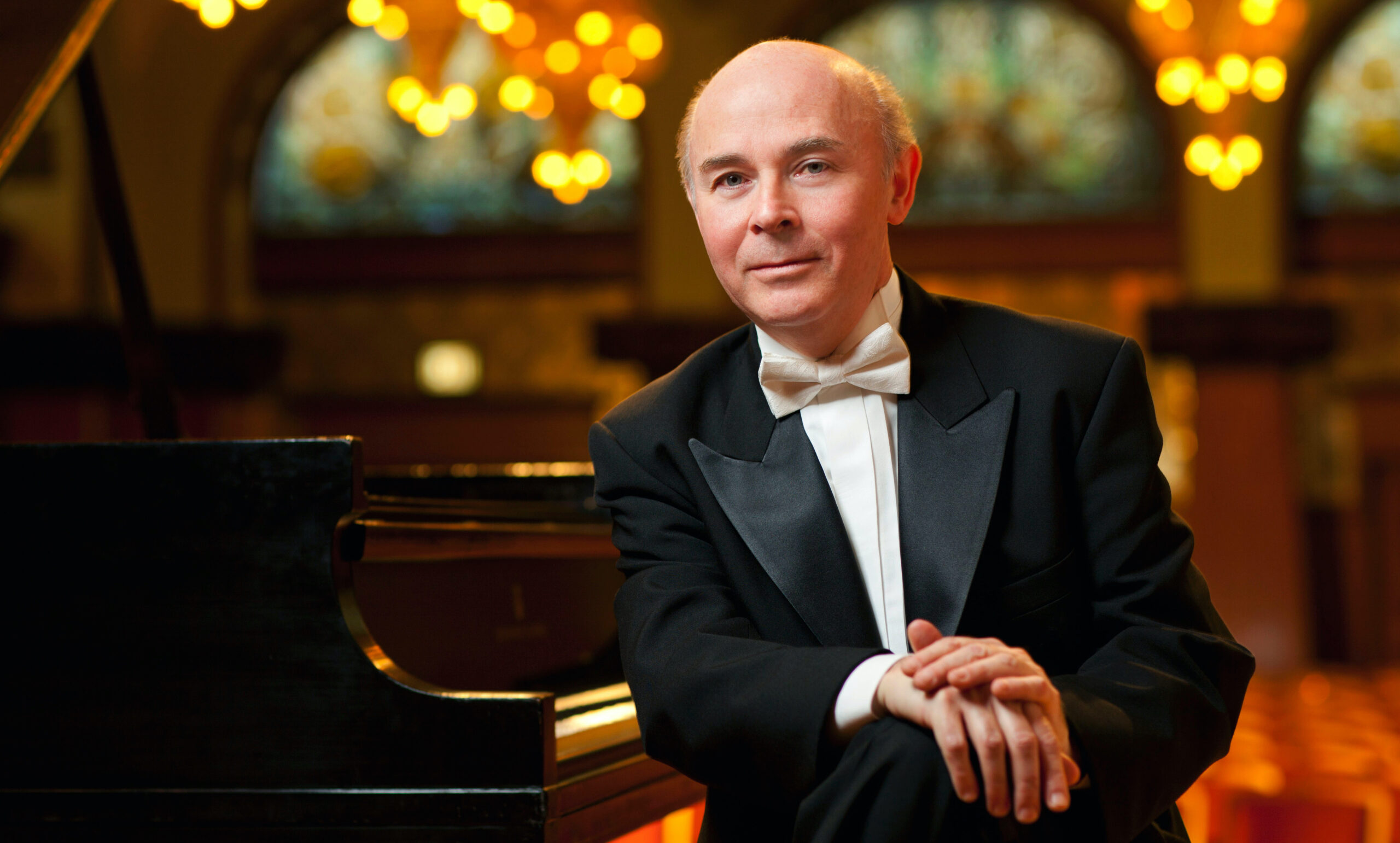Andrea Levine. Photo: Louisville Orchestra
Boléro & Friends
The Louisville Orchestra
JoAnn Falletta, conductor
Andrea Levine, clarinet
A review by Annette Skaggs
Entire contents are copyright © 2023 by Annette Skaggs. All rights reserved.
In case you have not heard, our Louisville Orchestra and Teddy Abrams have recently been nominated for a Grammy with their collaboration with the brilliant pianist Yuju Wang and The American Project. While I have not had the opportunity to hear the recording, I can only surmise that it is a stunning piece of work that only these talented musicians can produce.
So, it would be fitting that our orchestra should continue to attract world-class talent and as such we have been gifted an opportunity to see the incomparable JoAnn Falletta once again. She has graced our podium in the past and it is always a pleasure when she does as she often brings a remarkable program with her. This evening was no different.
Beginning with Richard Strauss’s Till Eulenspiegel’s Merry Pranks, Op. 28, we are introduced to the first theme of the piece which suggests the nature of the legendary prankster in a French horn that quickly resolves to the second theme, in the clarinet, that just screams shenanigans. Set to a poem by Strauss himself, the piece is complex and can send its listener into a tizzy. As lighthearted as the subject matter is, the last section is rather dark, almost funereal. Upon reading the poem, you understand the heaviness of that section: the storied Schnickelfritz has been arrested and condemned to die. And so it goes for Till, but his legend lives on through music.
To lighten the somber mood a bit we get to be entertained by John Corigliano’s Clarinet Concerto, featuring our own Andrea Levine. Corigliano is not a stranger to Louisville, having won a University of Louisville Grawemeyer Award in 1991 for his Symphony No. 1, which would then turn around and win a Grammy award the following year. It is always nice to hear a contemporary composer and his Clarinet Concerto is certainly different. In fact, Falletta believes that this piece has revolutionized concertos of the 20th century and beyond. I feel that she is on to something with that statement.
I was curious as to the titles of the movements: I) Cadenzas, 2) Elegy (In Memory of My Father), and 3) Antiphonal Toccata. Cadenzas is simple enough, two cadences with a small interlude, while Elegy is a beautiful tribute to his late father John, who served as a Concertmaster with the New York Philharmonic before his death in 1975. It is in the third movement, Antiphonal, that I understand Mr. Corigliano’s musical reach and bent: a look for the balance between the full orchestra and a wind instrument. He explores the abilities of the clarinet to its full extent and Ms. Levine was primed and ready for such an assignment. She glided over some interesting and at times frightful passages as if she had been reciting this piece since her youth. And to our orchestra’s credit, we were given a surround sound performance. Scattered among us within the balcony, wings, and rows of Whitney Hall were horns that added such a pleasurable auditory sensation that lingered in my ear for the rest of the evening. Brava, Andrea.
The second part of the evening includes Spanish by French composers. Ms. Falletta shared an aside “Who knew that French composers could write such beautiful Spanish works, especially when they’d never set foot on Spanish soil.” Loosely quoted.
It is true. Claude Debussy and Maurice Ravel had never traveled to Spain, but they were both enamored with the culture and the sound.
While part of a larger body of writing called Images pour orchestra, the second section Ibéria is the most familiar and popular. Debussy imagined how the city’s sights, sounds, and smells would be and carried those thoughts into this stunning work in three parts: In the Streets and Byways, The Fragrances of Night, and The Morning of the Festival. The whole of the piece absolutely sets your imagination into the namesake town and it is not hard to imagine its townsfolk and their lives appearing there on stage as the orchestra mimics their music.
What can I say about Ravel’s Boléro that has not already been said? Sultry, enticing, exciting, inviting, mysterious. I could list a dozen more superlatives, but I think we all get the idea of how this work has embedded itself into our classical music consciousness.
Again, like Debussy, Ravel had never traveled to Spain but he composed Boléro with the thought of a Spanish tavern that served as a home for a young, beautiful woman who loved dancing and the men who would occasionally join. This theme works as the piece was written as a ballet but is now more commonly performed as an orchestral work.
The snare drum that initiates the tempo of the dance and serves as the foundation by which the orchestra slowly layers is hypnotic and deeply satisfying. Instrument after instrument slowly and gently makes its way into the fold of the piece, parroting the same theme, but sometimes giving a small, yet intriguing variation of that theme. Before you know it, the whole of the orchestra is involved and the sound is rich and inviting.
A huge tip of the hat to the orchestra’s Percussionists. They handled a lot this evening and did it all with aplomb.
Bravi Tutti!!!
Boléro & Friends
November 18, 2023
Louisville Orchestra
Kentucky Center
501 West Main Street
Louisville, KY 40202
Louisvilleorchestra.org
Annette Skaggs is heavily involved as an Arts Advocate here in Louisville. She is a freelance professional opera singer who has performed throughout Europe and in St. Louis, Cincinnati, Boulder, Little Rock, Peoria, Chicago, New York, and of course Louisville. Aside from her singing career, she has been a production assistant for Kentucky Opera, New York City Opera, and Northwestern University. Her knowledge and expertise have developed over 25+ years of experience in the classical arts.





